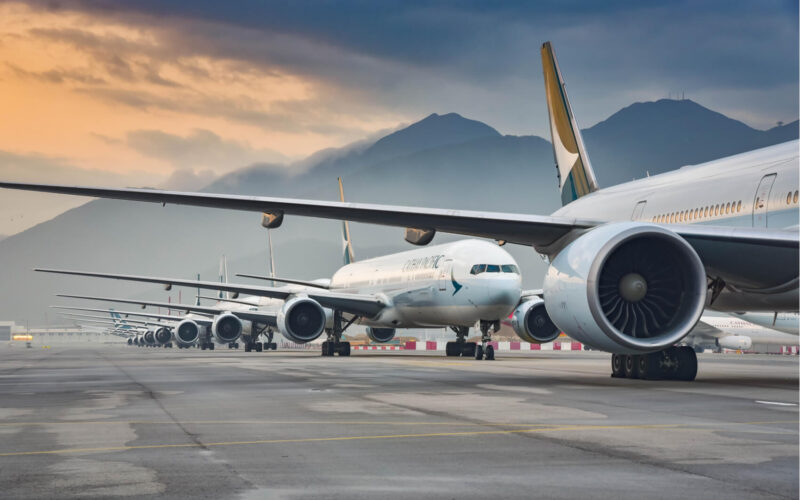With the coronavirus pandemic affecting the aviation industry and setting the demand for new aircraft at a record low, Airbus and Boeing find themselves in an unprecedented crisis. The financial impact has hit both manufacturers that are forced to burn through their cash to keep their supply lines active.
Airbus opened the dance early on the morning of April 29, 2020, by reporting a net loss of $521 million in the first quarter of 2020. Chief Executive Guillaume Faury warned its troops two days before: “The survival of Airbus is at stake if we do not act now.” 122 aircraft were delivered, 40 fewer than last year. Another 60 planes were produced but saw their deliveries deferred due to the COVID-19 pandemic.
The position of Boeing is hardly more favorable, as later in the day, it reported a net loss of $641 million. For Boeing, this is a second consecutive quarter in the red, and the manufacturer is already affected by another crisis ‒ the grounding of its 737 MAX, lasting for over a year now. Only 50 aircraft were delivered, a third of last year’s performance. Yet Boeing President and CEO Dave Calhoun remained confident. “Air travel has always been resilient, our portfolio of products and technology is well-positioned, and we are confident we will emerge from the crisis and thrive again as a leader of our industry,” he said.
The ongoing crisis struck commercial aviation so far, with a 48% drop in revenue for Boeing, and 22% for Airbus. The rest of their activities are seemingly unaffected: Airbus Helicopters were up 19% with $1.3 billion, and those of Airbus Defense and Space remained stable at $1.2 billion. Boeing Defense, Space & Security only saw a 8% drop to $6,042 billion.
A few weeks ago, manufacturers were struggling to meet the demand in planes from the industry. Now, deliveries are deferred, orders are canceled, and new aircraft are starting to pile up. In this context, both Boeing and Airbus hit the brakes.
On April 8, 2020, Airbus announced that its production rate would be reduced by a third. However, two days before publishing its financial results, Chief Executive Guillaume Faury warned its troops that this was not “the worst-case scenario”, and that it would soon be re-evaluated depending on demand.
Boeing took a similar decision and explained in its quarterly report that the production rate of the 787 would be reduced from 14 to 10 units per month in 2020, gradually falling down to 7 per month by 2022. The 777 and the upcoming 777X would be reduced to 3 aircraft per month in 2021. The 767 and 747 outputs, however, were to remain unchanged.
Commercial aircraft production by the two plane makers could ultimately drop by 48% in 2020, from 1,780 to 935 aircraft, according to a study of the consulting firm Oliver Wyman. It predicts that the short and medium-haul aircraft would recover faster than the long-haul airliners. “We believe the coverage of the air network at equivalent level in 2019 will be back in mid-2021,” predicts Oliver Wyman’s Jérôme Bouchard, quoted by Usine Nouvelle.
With so little work, supply chains are at risk, and the manufacturers are forced to eat up their cash at an unprecedented rate to keep their suppliers afloat. Airbus burnt through $8.7 billion in cash (including $3.9 billion in penalties), while Boeing reported minus $4.3 billion in operating cash flow ‒ the worst in the history of the company.
The need for cash forced Boeing to seek additional loans in the coming months after receiving $17 billion of state aid in the form of secured loans, as part of the United States’ $75 billion bailout of the airline industry.
While Airbus is seeking new credits, it has not yet received help from any government. However, shortly after its financial results were published, French Minister of the Economy Bruno Le Maire offered a financial lifeline to the manufacturer, saying France was ready to help “fully” and if necessary “massively”.

